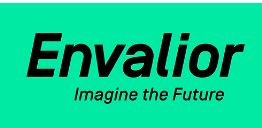Envalior is investing in materials that meet these demands across the full spectrum of electric vehicle architecture—from battery systems and power electronics to lightweight structural parts. With growing regulatory support in regions like Europe and India, and OEMs targeting carbon neutrality, our role as a material science partner becomes critical, says Dr. Nilesh Kukalyekar, Business Director, South Asia Middle East and South Africa, Envalior in an interview with EVolution Auto India.

Q: Could you please share Envalior’s strategic vision for the electric mobility sector?
Nilesh Kukalyekar: Our strategy is rooted in enabling the EV ecosystem with advanced material technologies that deliver performance, sustainability, and scale. We recognize that transitioning to electric mobility isn’t just about electrification but optimizing every component for energy efficiency, thermal management, and recyclability. Envalior is investing in materials that meet these demands across the full spectrum of electric vehicle architecture—from battery systems and power electronics to lightweight structural parts. With growing regulatory support in regions like Europe and India, and OEMs targeting carbon neutrality, our role as a material science partner becomes critical. We aim to support EV makers not only with product innovations but also with design expertise, simulation capabilities, and global technical service.
Q: What are some of the most cutting-edge material solutions Envalior is developing or supplying for EV applications, particularly in battery enclosures, power electronics, or lightweighting?
Nilesh Kukalyekar: We are seeing strong adoption of our Xytron® (PPS) for battery thermal management due to its high temperature stability and dimensional control. Arnitel®, our thermoplastic elastomer, is being used for cable sheathing and gaskets that must withstand high voltages and harsh conditions. In lightweighting, our Stanyl® and Akulon® materials continue to replace metal in brackets, engine covers, and structural parts. These materials not only reduce vehicle weight but also contribute to lower manufacturing emissions. For power electronics, our flame-retardant grades meet demanding UL94 standards while offering excellent flow characteristics. A case in point is our work with tier suppliers for battery housings that integrate cooling, structural integrity, and electromagnetic shielding into a single material platform.
Q: Can you highlight any recent or upcoming collaborations with OEMs, Tier-1 suppliers, or startups that aim to accelerate EV adoption?
Nilesh Kukalyekar: Envalior has ongoing technical partnerships with several Tier-1 suppliers and EV startups in Asia and Europe, focusing on integrated battery module designs and scalable thermal management systems.
Q: Envalior is known for transforming discarded fishing nets into a high-performance material called Akulon® RePurposed, a glass fiber-reinforced, recycle-based polyamide. Please tell us more about this innovation.
Nilesh Kukalyekar: Akulon® RePurposed is a compelling example of how circular economy principles can be applied at scale. By sourcing discarded fishing nets from coastal communities in India and elsewhere, we give new life to waste that would otherwise contribute to ocean pollution. The material, once reprocessed, offers properties comparable to virgin nylon and is used in applications such as automotive components and consumer electronics. This initiative not only reduces dependency on fossil fuel-based feedstocks but also supports local recycling economies. It demonstrates how sustainability and performance can go hand-in-hand without compromising on quality or regulatory compliance.
Q: What do you see as the next frontier for material science in EVs—beyond 2025?
Nilesh Kukalyekar: Envalior is exploring next-generation materials for solid-state battery integration, lightweight structural composites with higher recyclability, and new flame-retardant solutions with reduced environmental impact. As thermal and electrical demands rise, materials that combine multi-functionality with circularity will be key to EV evolution.
Q: What message would you like to share with the Indian EV ecosystem regarding innovation, collaboration, and sustainable growth?
Nilesh Kukalyekar: India’s EV growth presents an opportunity to leapfrog legacy systems and build a sustainable mobility framework from the ground up. Our message to stakeholders is to focus on long-term material partnerships that support design innovation, supply chain resilience, and lifecycle sustainability. Collaboration across OEMs, startups, academia, and material suppliers is essential to unlock India’s EV potential. At Envalior, we see India not just as a market but as a development hub, and we’re committed to co-developing solutions that meet the region’s unique regulatory, infrastructural, and environmental needs.
Q. Recently, Envalior announced plans to cut its Scope 1 + 2 greenhouse gas emissions 100 percent by 2040 and 75 percent by 2030 based on a 2016 baseline, and to use 100 percent renewable electricity by 2030 in all sites. Tell us more about your strategies and sustainability goals.
Nilesh Kukalyekar: Envalior has committed to aggressive emissions reductions through a mix of energy sourcing, process electrification, and supply chain engagement. Sustainability is integral to Envalior’s operations. We offer a range of more than150 recycled or bio-based grades, including Durethan PA6 & PA66 ECO and Pocan PBT ECO, which incorporate post-industrial recycled glass fibers. Our mass-balance approach extends to products like EcoPaXX, Stanyl, Akulon, Arnitel, and Durethan, ensuring a reduced carbon footprint. Notably, our Akulon PA6 repurposed grade is produced from recycled fishing nets, achieving up to an 82 percent reduction in carbon footprint.
These sustainable materials are pivotal for APAC automotive manufacturers striving to meet environmental regulations and consumer expectations for eco-friendly vehicles. Additionally, Envalior is committed to achieving 100 percent renewable electricity by 2030 and significantly reducing greenhouse gas emissions, demonstrating our dedication to environmental responsibility.